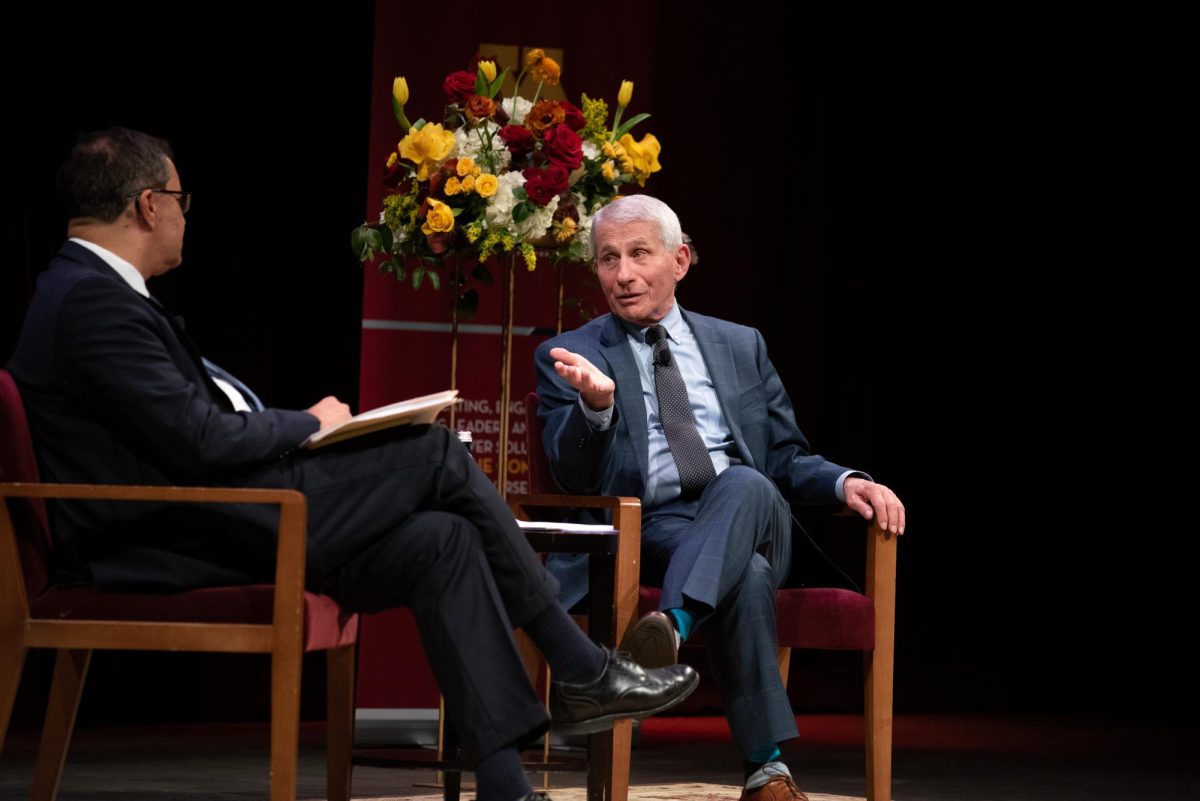As International Day of Climate Action approaches on Monday, the University of Minnesota is showcasing its commitment to climate action through several organizations such as the Institute on the Environment (IonE), the University of Minnesota Climate Adaptation Partnership (MCAP) and the UMN Twin Cities Sustainability Committee.
Seventy-six percent of Minnesotans are worried about climate change and 64% of Minnesotans think we should prepare for climate change, according to a recent study by the College of Food, Agricultural and Natural Resource Sciences (CFANS) in partnership with MCAP.
IonE is an extension of the University and focuses on solving larger environmental issues through education, research and policy.
“We really try to be a hub for collective climate action, innovation and impact,” Kate Nyquist, manager of communications and content at IonE, said. “Our mission is really impact driven so that what happens within IonE makes some change out in the world.”
IonE does conduct research, but they also take the next step to understand how decision-makers will access and use this information through local solutions and building community partners, Nyquist said.
One project that IonE is working with is the Upper Mississippi River Basin Association, local communities and the National Oceanic and Atmospheric Administration (NOAA) to better understand flooding threats and climate change adaptations.
Another project IonE has, in partnership with Stanford University, is the Natural Capital Project, in which developers, municipalities, consultants and advocacy groups connect to understand the value of natural services through creating models, Nyquist said.
Additionally, IonE works with German partners on an international renewable energy partnership called Climate Smart Municipalities and has a program for food system supply chain sustainability, also known as FoodS³.
“We know that collective and collaborative action is going to create more creative and sustainable solutions, so we work hard to create the conditions that help bring people and their ideas together,” Nyquist said.
Aside from IonE, the University also created MCAP to understand climate change impacts and predict future outcomes across the Midwest.
“To help Minnesotans better understand future climate risks, we are working on a project supported by the State Legislature of Minnesota to generate future climate projections for the next 50-100 years,” MCAP Associate Director Nate Meyer said.
Another project is working to monitor and assess the success of priority actions outlined in the Resilient Communities section of the new Minnesota Climate Action Plan, Meyer said.
Additionally, MCAP is working with tribal communities to co-develop an updated adaptation plan for the 1854 Treaty Authority and the Bois Forte, Grand Portage and Fond du Lac reservations, Meyer said.
“International Climate Action Planning Day is very much aligned with our partnership’s vision that communities and landscapes are prepared for and thrive in a changing climate,” Meyer said. “Adapting to our changing climate requires an all-of-society approach where everyone is engaged in paying attention, planning for and taking action.”
The University also developed the UMN Twin Cities Sustainability Committee to focus on changes needed for MPact 2025, a systemwide plan to advance the University’s mission and innovation.
“In the MPact 2025 strategic plan, the University aims to build a fully sustainable future and taking action on climate change is at the heart of this,” Shane Stennes, chief sustainability officer at all University of Minnesota campuses, said. “We’ve made progress, cutting campus carbon pollution by half, but the work is not done.”
The University announced plans to divest from fossil fuels in October 2021 after years of pressure from student groups.
The committee is holding an All Campus Sustainability Kick-off on Saturday to showcase sustainability on University campuses and build connections for the upcoming planning stages.
According to the sustainability committee website, the committee plans to finalize their Climate Action Plan for MPact 2025 by summer 2023.
As for individual action, there are many ways students can get involved with the International Day of Climate Action, such as educating themselves on sustainable practices, understanding how their major can impact climate change and providing input for MPact 2025.
“I encourage students to learn about how their academic interests and major disciplines can help to address climate change,” Meyer said.
Artie Hillman, a student graphic design assistant at the IonE, said they are currently working to post an education series pertaining to climate action every Monday.
IonE is dedicated to providing opportunities for students, faculty and community partners to become sustainability leaders through cohorts, projects and curriculum, Nyquist said. IonE also employs many students in the sustainability field, she said.
“Youth voices, on campus and beyond, are critical to achieving the transformational change needed,” Stennes said.
Students interested in participating and learning more are also invited to attend the Twin Cities Climate Action Workshop on Nov. 15 from 4-5:30 p.m. in Moos Tower, Stennes said.














